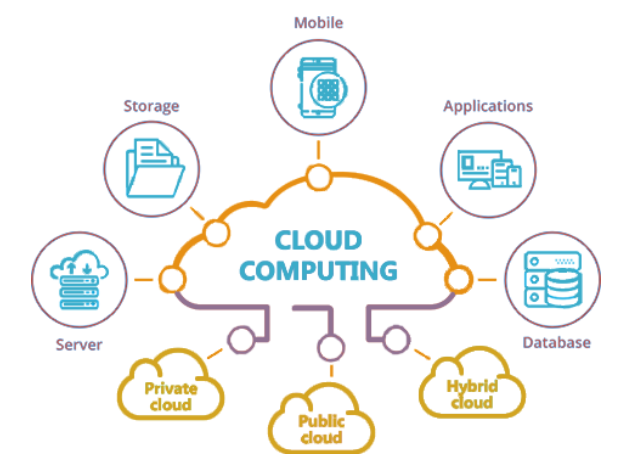Navigating the Cloud: A Comprehensive Guide to AWS Cloud Services
Explore AWS Cloud Consultancy, a set of cloud computing tools from Amazon Web Services that are flexible, dependable, and affordable. This guide covers how AWS Cloud has developed, its benefits like easy scaling and strong security, and its main parts such as computing, storage, databases, networking, analytics, and machine learning. Master the essentials for leveraging AWS Cloud solution consultant capabilities effectively.


Introduction to AWS Cloud
AWS Cloud, also known as Amazon Web Services Cloud, provides a range of cloud computing services. These services are flexible, dependable, and budget-friendly for both businesses and individuals. In this easy-to-follow guide, we will cover the basics, how AWS Cloud consultancy has evolved, and the benefits it offers.
What is AWS Cloud?
AWS Cloud is a set of services from Amazon Web Services Consulting. It lets users access various computing resources over the internet. Services include analytics, machine learning, networking, databases, storage, and processing power.
History and Evolution of AWS Cloud
Amazon Web Services (AWS) started in 2006, but its beginnings go back to the early 2000s. Back then, Amazon was developing its own infrastructure to service its expanding online business. Seeing the value in this setup, Amazon decided to offer it to other businesses. This idea led to the creation of AWS Cloud.
AWS Cloud Consultancy has improved and expanded its services over time to meet evolving corporate needs. It has become the top cloud computing provider, providing a wide range of services and solutions to businesses of all kinds.
Benefits of AWS Cloud Services
The following are some benefits of utilizing AWS Cloud services:
Scalability: AWS Cloud lets businesses adjust their resources up or down depending on their needs. This helps them maintain good performance while keeping costs under control.
Reliability: AWS Cloud services are made to be very reliable. They have built-in backup systems and failover features to keep things running smoothly even if something goes wrong.
Cost-effectiveness: With AWS Cloud, businesses pay only for what they use. This implies businesses won't have to invest in pricey hardware or infrastructure up first.
Flexibility: AWS Cloud provides a diverse choice of services and solutions, allowing organizations to select those that best meet their requirements.
Security: AWS Cloud offers strong security to keep data and applications safe. It includes features like encryption, access controls, and certifications for compliance.
AWS Cloud Infrastructure
The strength of AWS Cloud comes from its strong global infrastructure. This setup ensures that services are always available, can easily scale, and are secure.
Understanding AWS Global Infrastructure
AWS runs in various locations throughout the world, each with multiple availability zones. An availability zone is a data centre facility that is separate from the other availability zones in the same region. This design makes sure that if one availability zone fails, the services in other zones keep working without any issues.
AWS also has a worldwide network of edge locations called Amazon CloudFront. This helps deliver content to users quickly and with minimal delay.
Components of AWS Cloud Infrastructure
The components of AWS Cloud infrastructure include:
Compute: AWS offers a variety of computational services, including Amazon EC2, which delivers virtual servers in the cloud.
Storage: AWS offers various storage choices. For object storage, there’s Amazon S3, and for block storage, there’s Amazon EBS.
Database: AWS provides managed database services. For relational databases, use Amazon RDS; for NoSQL, use Amazon DynamoDB.
Networking: AWS offers networking services such as Amazon VPC (virtual private cloud) and Amazon Route 53 (DNS administration).
Analytics: AWS provides several analytics services. Amazon Redshift is used for data warehousing, and Amazon Athena helps run interactive SQL queries.
Machine Learning: Machine learning services are offered by AWS, including Amazon SageMaker. It enables you to create, train, and deploy machine learning models.
These are only a few examples of the components that comprise the AWS Cloud infrastructure. AWS provides a wide range of services to meet various company needs and requirements.
In summary, AWS Cloud services offer businesses and individuals many flexible, dependable, and affordable solutions. Knowing the basics, how AWS Cloud has developed, and its benefits is important for using these services effectively.
FAQ's
What makes AWS Cloud reliable?
AWS Cloud is reliable because of its global infrastructure. It uses multiple availability zones within regions, so if one zone fails, others continue to operate. AWS also has a network of edge locations, called Amazon CloudFront, for fast content delivery.
Why should I work with a cloud technology consultant?
A cloud technology consultant offers expertise in cloud solutions and technologies. They help you pick the right services, set them up correctly, and make sure they run smoothly. This helps improve performance and lower costs.
How does AWS Cloud support global operations?
AWS Cloud supports global operations through its vast network of data centers and edge locations around the world. This setup makes sure your applications and data are accessible from anywhere. It also provides quick response times and high performance.
How can an AWS consultant assist with optimizing cloud resources?
An AWS consultant can help optimize your cloud resources in several ways. They start by analyzing your current usage to identify inefficiencies or over-provisioned resources. The consultant suggests changes like resizing instances, switching storage types, or setting up auto-scaling to fit your needs. They also help you follow best practices for managing resources and controlling costs. By keeping an eye on your resources and making adjustments, the consultant makes sure your cloud setup stays efficient and cost-effective.
What role does a cloud technology consultant play in compliance and regulatory requirements?
A cloud technology consultant is key in making sure your cloud setup meets all necessary rules and regulations. They help you understand the regulations that apply to your industry, like GDPR, HIPAA, or PCI-DSS, and make sure your AWS setup follows these rules. They help add security measures like data encryption and access controls. They also assist with the paperwork and reports needed to prove compliance.


